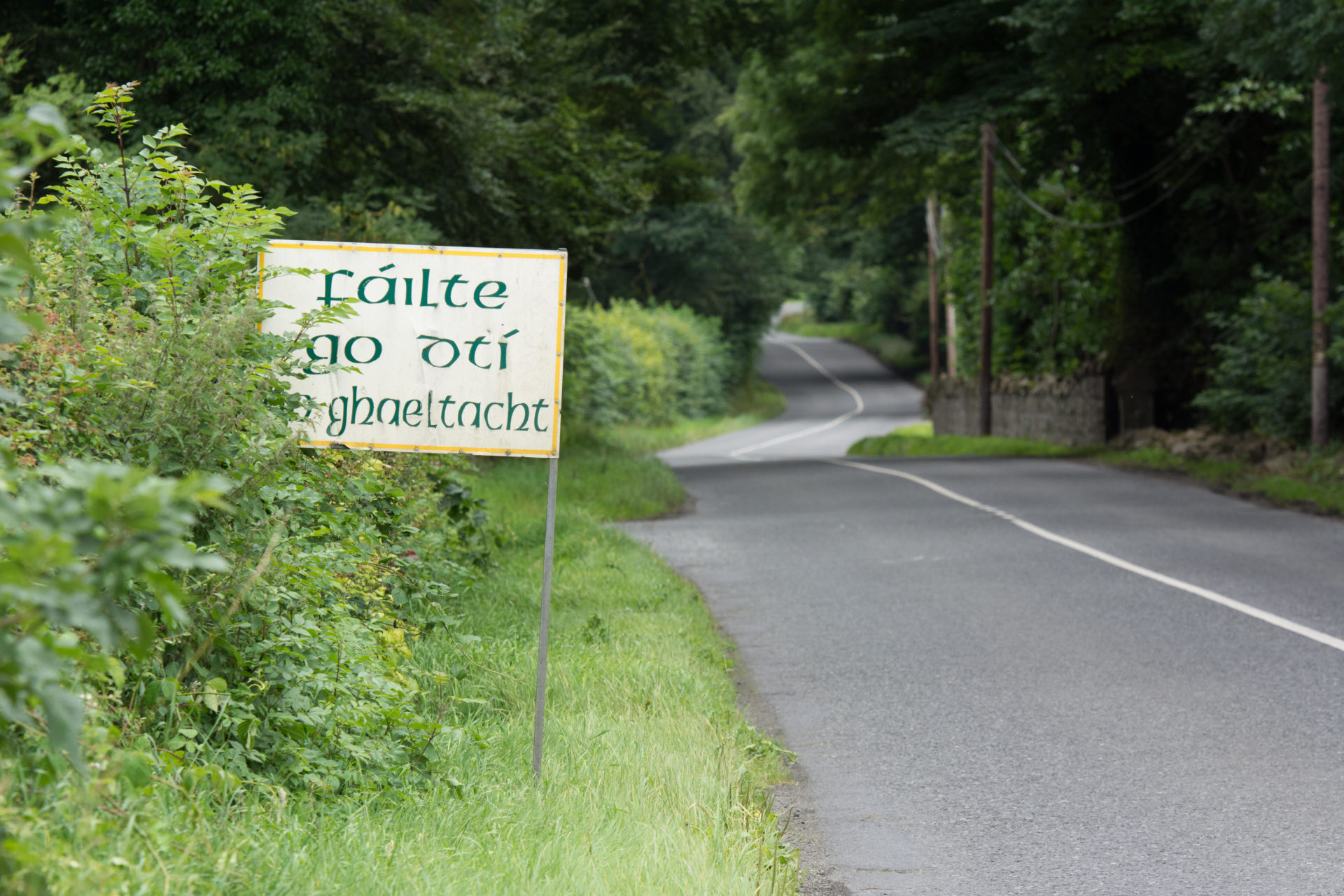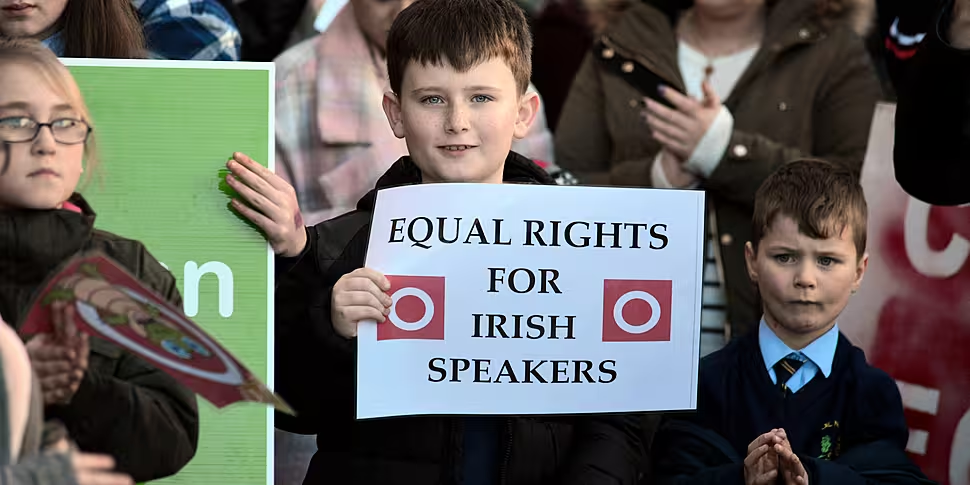Could dropping Irish as the State’s first official language actually help it in the long-term?
Currently, the Constitution recognises Irish as the State’s first official language and English as its second.
On Newstalk Breakfast, Irish Independent journalist and gaeilgeoir John Downing described this as “absurd” and said the language could benefit from less State support.
“One of the great positives last year was Kneecap: The Movie and I found it very, very funny, very engaging,” he said.
“But if you look at Kneecap, those young lads’ enthusiasm for the Irish language was born of adversity and opposition from the authorities in Northern Ireland.
“Here we are 100-years after our independence; last summer was the hundredth anniversary of Irish being made compulsory in schools and there are fewer people speaking Irish now than there were when the new State was formed.”
🎬 OFFICIAL KNEECAP MOVIE TRAILER
“Every word of Irish spoken… is a bullet for Irish freedom” 💥
🎥 Coming to your local cinema across Ireland, Scotland, Wales & England 👇
🇮🇪: 8 August
🏴🏴🏴: 23 August🌎 rest…standby
🇮🇱 No movies ❌ pic.twitter.com/wg8wGq10FF— KNEECAP (@KNEECAPCEOL) June 6, 2024
Mr Downing conceded there is a “danger” to reducing State support for Gaeilge but pointed out that one of the most successful ways of promoting the language is by setting up a Gaelscoil - many of whom were established with little help from officials.
“Gaelscoileanna are born out of adversity,” he said.
“I’m speaking to people in kitchens around Ireland whose kids are going to be going to school today in a leaky clapped out prefab because they’re still waiting on a premises.
“They have to fight tooth and claw.”
 A sign welcoming people to the Gaeltacht. Picture by: Alamy.com.
A sign welcoming people to the Gaeltacht. Picture by: Alamy.com.Although Irish remains compulsory for most students in English medium schools, Mr Downing feels the teaching of the language is often poor.
“If you were to run the rule over this, the number of hours spent in schools drilling kids, you wouldn’t spend that kind of money or those kinds of resources on anything else and persist with it,” he said.
“It has been, at best, ineffective and at worst counterproductive.”
According to the 2022 Census, close to 1.9 million people in Ireland can speak Irish - 112,500 more than in 2016.
Despite this, the number of speakers in the language’s heartlands continued to fall; only 66% of people in the Gaeltacht are gaeilgeoirí - down from 69% in 2011.
Main image: A child at protest calling for an Irish Language Act in Derry. Picture by: Alamy.com.









